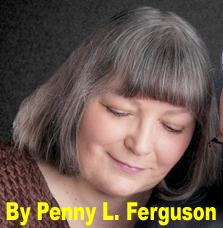Words That Should Not Be Allowed To Vanish |
|
|
About a month ago, Through His Grace (my husband and I), were invited to do a gospel concert at a rural church. When we arrived, the pastor, an older gentleman, was on hand to open the building for us. My husband brought in and began connecting the sound gear and I started setting up our product table. As I did so, the Reverend and I began a conversation. He expressed his dismay with many of the turns the modern church is taking and with the song choices of a number of gospel groups/singers that had been through this particular church in the last few years. Being a gospel song writer, I delved deeper into exactly what he disliked about some of the songs he was hearing and I found we were of like mind. I told him I felt the switch to selecting only Praise and Worship for a concert is not necessarily a good thing. Balance is need when making song selection. |
Do not get me wrong—there is nothing wrong with worshipping and praising the Lord in song; however, not everyone in our congregations/audiences is a born-again Christian and those who aren’t need to hear evangelical content. Also, the average Christian today needs to hear words which God can use to encourage and/or convict their souls. Unfortunately, in some cases, the language that is used to achieve these ends is disappearing from gospel music as some seek to offer what is comfortable instead of what is needed. There are words that should not be allowed to vanish from our gospel song vocabulary—or our sermons. I will be calling to mind some of these words below, but first, let’s look at a reason for their disappearance. In some gospel songs and in song selection for concerts, as in some church services, the gospel is being sanitized, cleaned up so as not to offend, make anyone uncomfortable or to provoke too much emotion. We wouldn’t want to scare anyone away with the whole truth and nothing but the truth. Conviction might not be good for sales at the product table or for the offering plate during services. The unsaved might go away and not come back, having felt the pinch of conviction. Some of the saved might respond in the same way. At a church family camp we sang at a couple of years ago, I heard the National Director of a particular Christian denomination give a message wherein he spoke of the current state of gospel music. He made the point that, to the unsaved, praise and worship is “gibberish”—his word, not mine. “What do the unsaved know about praising and worshipping the Lord?” he asked, going on to say they have no understanding of it and that they needed to hear music of an evangelical nature that would draw them to Christ, not approach them as if they had already arrived. I have to admit, I largely agreed with what I heard that day. So, how do we achieve this evangelical nature that will draw the lost to Christ in our song writing? It begins with the gospel song writer staying true to the gospel and holding on to the language and the ideas that are fundamental to our evangelical faith. It is also the responsibility of the gospel artists in making song choices. Let’s look at some of the language to which I am referring. First, those who do not believe in Jesus Christ as their Lord and Savior need to be referred to as the “lost” or the “unsaved.” The gentler terms, such as “unbelievers,” are eternally misleading. To say that someone does not believe as a Christian believes does not convey the gravity of the situation. You may believe in Santa Claus. I do not. That is no big deal. It won’t affect my life eternally. Not believing in Christ will and people need to know that.
|
| CLICK TO CONTINUE! |








